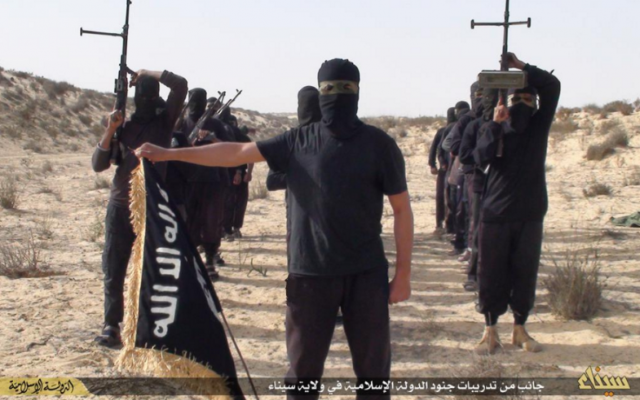Israeli police arrested five suspects in Jerusalem in the wake of a rash of deadly ISIS-inspired terror attacks this spring.
By United with Israel Staff
A spokesman from the Israel Police announced that authorities arrested five men from the eastern portion of Jerusalem over the weekend. The suspects are suspected of belonging to the Islamic State (ISIS) terror organization.
“We take any act of incitement, threats, support for terrorist organizations or identification with them seriously. We will continue to take action against these criminals and offenders in order to bring them to justice,” said the Israeli Police in a statement published by the Jerusalem Post.
Last month, ISIS claimed responsibility for an attack in which terrorists killed Shirel Abukarat and Yezen Falah, two Border Police officers. The attackers were armed with at least three handguns and six knives and were eliminated by security forces.
Abukarat and Falah were both 19 years old. Abukarat was a resident of the coastal city Netanya and joined the border police 6 months ago. She was survived by her parents and a brother.
Falah was from the Druze village of Kisra-Sumei in the Galilee. He joined the Border Police a year ago and was survived by his parents and a brother and sister.
While ISIS captured significant swaths of territory in nations such as Syria and Iraq at the height of its rise, it was also able to attract the allegiance of terror-supporting Arabs within Israel.
Some of those individuals carried out heinous attacks on civilians, including January 2016 murders committed by an Arab-Israeli who shot three people in Tel Aviv. Half a year later, two Palestinians murdered four Israelis in Tel Aviv’s Sarona Market.
ISIS-inspired attacks are different than other terror threats facing the Jewish state and present unique challenges for Israel’s security forces.
Col. (res.) David Hacham, a former Arab-affairs adviser to seven Israeli defense ministers, recently explained that ISIS in Israel “is usually made up of unorganized individuals or small cells that act without infrastructure or operational coordination,” reported Israel Hayom.
“High-quality intelligence is needed to uncover those on the ground with aspirations of attack. A boosted security presence is also needed along the seam line where Palestinian workers cross, as well as in Israel itself,” added Hacham.
